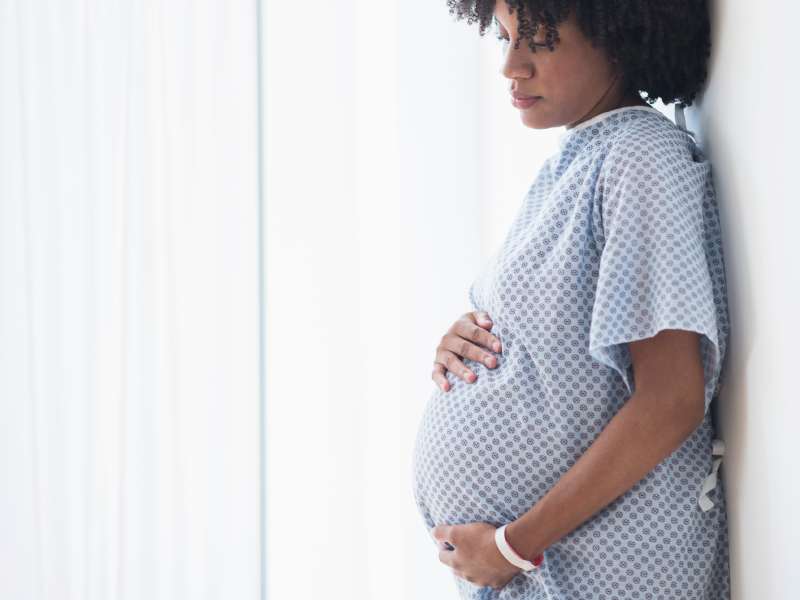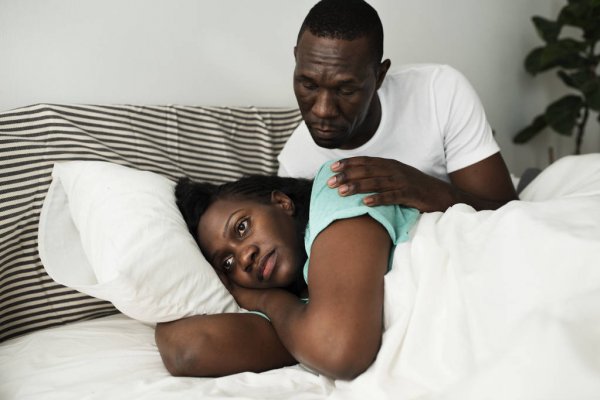Endometriosis is a common gynecological disease, and it can take up to 10 years for the average patient to receive a proper diagnosis. The disease occurs when tissue similar to the uterine lining (endometrium) grows outside the uterus in places it shouldn’t. It could include your ovaries, fallopian tubes, bladder, and sometimes the bowels, intestines, or tissue that lines your pelvis.
This can cause widespread pelvic pain, severe menstrual cramps, and painful intercourse. Sometimes it also can interfere with your ability to conceive, but not always. Although endometriosis does not necessarily cause infertility, it can impact fertility, but this does not mean that if you have endometriosis, you cannot get pregnant. Instead, it means you have a more challenging time getting pregnant.
If you are diagnosed with endometriosis, the abnormal tissue that grows outside of your uterus thickens before ovulation, and during menstruation, it swells and bleeds into areas it should not be. This swollen tissue may block the fallopian tubes or grow into the ovaries, which can make it more difficult for pregnancy to occur.
Endometriosis is a progressive condition, which means it can gradually worsen over time. As more and more patches of the endometrial tissue grow in the pelvic and abdominal areas, they can block the reproductive organs. This makes it harder for sperm to reach the egg. Additionally, these growths can damage the surrounding reproductive organs, impacting negatively on fertility.
So, you may become worried about whether you’ll be able to have children. While you do have reason to be concerned, the situation may not be as bad as you expect.
It often takes longer to become pregnant with endometriosis. The problems with fertility may not be related to the severity of endometriosis as it is not only explained by the anatomical of the reproductive organs.
When you have endometriosis, infertility is a high risk in terms of even conceiving and you may require some type of assisted reproductive technology. Surgery to remove or reduce endometriosis growths outside the uterus, or assisted reproductive technology (ART), can often improve your chances of becoming pregnant.
However, the stage of the disease can make a difference. It is known that about half of women with infertility also have endometriosis, but it can affect fertility by preventing an embryo from implanting, scarring the fallopian tubes, affecting egg growth, creating a hormonal imbalance, and causing chronic inflammation in the pelvis
Most medical treatments for endometriosis aim to prevent ovulation, but when you’re trying to get pregnant, you’ll stop taking these treatments. The good news is that if you are living with endometriosis, you can succeed in becoming pregnant. It stands to reason that fertility issues due to endometriosis can be related to several causes, especially if endometriosis affects your ovaries and/or fallopian tubes.
Traditionally, an egg travels from the ovary, to the fallopian tube, and to the uterus for fertilization before implanting into the uterine lining. If you have endometriosis in your fallopian tube lining, the tissue may keep the egg from traveling to the uterus.
It’s also possible that endometriosis could damage an egg or a sperm. You may need to see a fertility specialist before you start trying to become pregnant. It is used to be that the only way to truly diagnose endometriosis is surgery to identify areas where the endometrium-like tissue is present. But take care that these surgeries do not potentially result in scarring that may affect fertility. Talk with your doctor about the risks and benefits of surgery. Based on this, recent recommendations no longer use surgery as a gold standard for diagnosis.
A fertility specialist can work with your doctor to determine the severity of your endometriosis symptoms and contributing factors to your fertility issues. Endometriosis can affect your ovarian reserve, so you may be recommended to store eggs now in case you wish to become pregnant later.
The success rates of IVF if you have endometriosis are comparable to the success rates of persons with other reasons for fertility issues. Many people with endometriosis have successfully gotten pregnant thanks to IVF treatments, so it is not surprising that IVF is often recommended for people with moderate to severe endometriosis, or if you haven’t responded to other treatments.
Try to stay as healthy a lifestyle as possible when you have endometriosis and trying to get pregnant. This can reduce inflammation and help your baby grow and thrive throughout a healthy pregnancy.
Keep in mind that age can be a factor when you are wishing to get pregnant. Higher fertility rates are associated with younger age. Women ages 35 and older are at an increased risk for both fertility issues and miscarriage than younger women.
The good news is that you can overcome infertility even if you are living with endometriosis. You can conceive and ultimately deliver a healthy baby, so do not let anyone tell you differently. The key is to start discussing your conception options, sometimes even before you think about getting pregnant. When you have endometriosis and you’re trying to get pregnant, talk with your doctor if you haven’t conceived after six months of trying.





